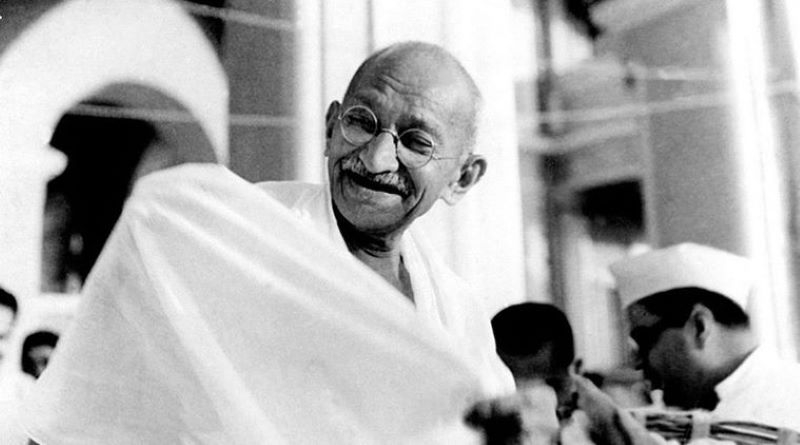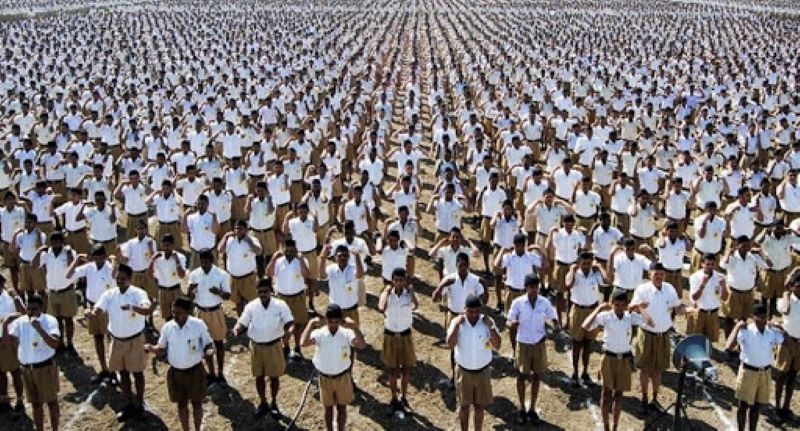Opening the RSS to the world -III: The core concept of Hindutva

The Sangh wants to bring back the best traditions of the past. It does not end that view the past, present, or future as disjointed. It believes in using the accumulated knowledge and experience of the past as a foundation for the present and future line of action. If the foundation is strong, the progress will be better. It is the firm belief of the Sangh that when the modern way of life is adopted, the ancient traditions must not be abandoned. Sangh’s critics have projected it as the ‘Hindutva’.
In view of the author, it is an integrated force to create harmony, trust, and mutual respect. The Sangh’s ethos is to act with a collective spirit. Its temperament is scientific and its decisions are derived logically.
It is committed to instilling the element of oneness in society. It derived the strength from the verse of Upanishad which ordains: ‘Let us come together, Let’s speak together, let our minds be of one accord as the gods of the old set together in harmony to worship’. It is the Mantra/Dictum of RSS. ‘Samuhikata’ stipulates that when society irons out its internal differences only then the nation can progress. Reaching out to people is a task of national interest. The truth is won, but the same is called by the wise people by different names- ‘Ekam Sat, Vipra Bahudha Vadanti’.
It is clarified that no one should be discriminated against because of the difference in the modes of worship. This constitutes the difference between the Sangh and Hindu Mahasabha. The Sangh shares the philosophy that Bharat belongs to all who are born here and continues to live here irrespective of religion, faith, or the school of thought they belong to.
After the partition, the second Sarsanghchalak gave a call to work for the victims of partition irrespective of their religion emphasizing that it was a tragedy to everyone and the Sangh would treat it as one. This gesture of Sangh was noticed by the Sangh leaders including Mahatma Gandhi. This gesture was appreciated by Pt. Jawaharlal Nehru. No doubt, at the time of the partition, religion became a reason for violence. The Sangh opposed the partition on religious lines. When Gandhiji agreed to partition, the Sangh condemned the decision.

Sardar Patel also said that the Swayamsevaks are the patriots and they love their motherland. Deendayal Upadhyay, one of the Sangh thinkers and co-founder of the Bharatiya Jan Sangh were asked about the fate of the Muslims in Bharat, he replied that the Hindus in India were known for their co-existence values. There would be no harm to Muslims and there is no need for fear.
Politics and the RSS: Conversion according to Sangh is a threat that happens in tribal and in underprivileged areas. The Sangh is not a political party but a social organization. It has no political intent nor does it work for any political outcome, however it has a political impact on national political life. It stays away from politics. Shakha system has produced Swayamsevaks who are now in politics and have attained high positions. These are incidental facts that the RSS does nothing other than running Shakha’s but the Swayamsevaks will enter in every sphere.
The Swayamsevaks work in different domains of our society i.e. education, politics, economy, security, and culture. The goal of RSS is to make India great. It is dedicated to making the India corruption-free. The Sangh works for uniting all castes and for establishing a strong Hindu society. The Sangh is keen to create a new system that is aligned with the ideas originated in India itself.
The Sangh is cautious of new technologies especially related to nuclear weapons and satellite communication. It is also cautious on the development of indigenous technologies to prevent dependency on other countries. It believes that we should modify technologies developed in any part of the world if suites to our country.
Human interest must not be overlooked in favor of machine and the mindless adoption of technology causes environmental pollution. The Sangh advocates the use of eco-friendly technologies. RSS philosophy believes in the eternal spirit of Bharat.

The first meeting was held at his residence in 1926. He assumed charge as Sarsanghchalak in 1929. Doctorji’s grammar of nationalism is Hindu identity i.e. national identity. Thus, the RSS was formed to re-establish this identity. The shakha time table is an hour long. The RSS flag hoisting is a protocol and Swayamsevaks stand in attendance. To ensure the shakha system works efficiently regional and national ‘Adhikari’ of the RSS tour extensively. Shakhas are held in the morning, evening, and night to cater to the increasing numbers for people of numerous age groups. The captain of the shakha is ‘Mukhya Shikshak’.
On co-mingling and co-working of caste, Gandhiji asked the Swayamsevaks how they interacted; he got reply ‘Hum Sab Hindu Hain Aur Hum Sab Bandhu Hain’. Even today in the RSS no task is high or low. Everyone has to handle the task assigned to them.
The RSS manages its financial affairs with ‘Gurudakshina’ money i.e. modest contributions of the Swayamsevaks. In view of Doctorji when people realize that RSS work is significant for the sustenance of society, they would come forward with contributions. In such situations, financial help would not be opposed.
The Concept of Akhand Bharat: In all Shakhas, an important lesson is given to all that India is a Hindu Rashtra. The preservation and development of this value have a priority. Pride in India’s culture and history is a matter of prime importance. This reflects the principle of Akhand Bharat. Differences based on caste, region, and wealth should not exist in society.
Bharati Web








